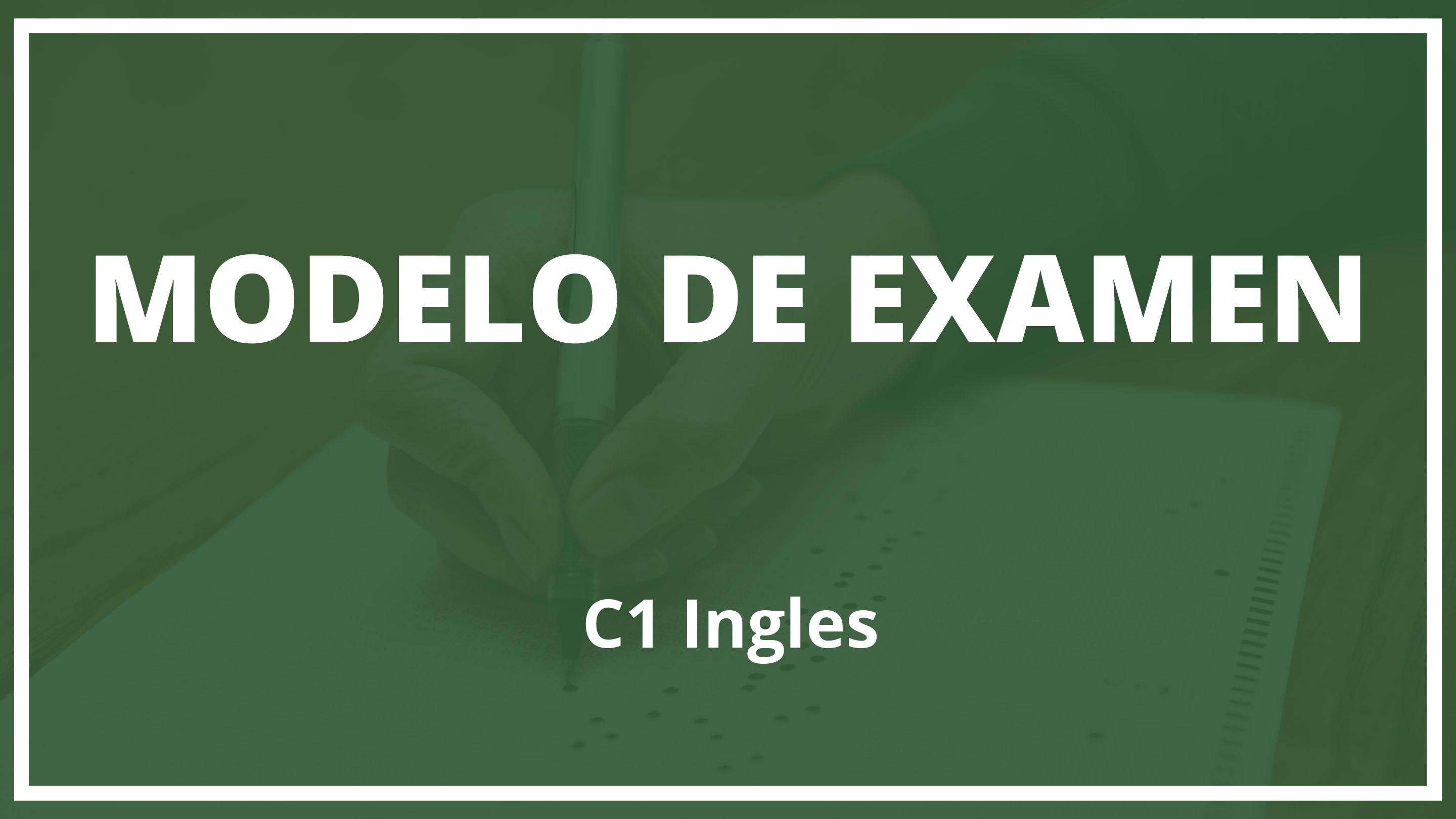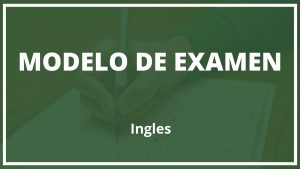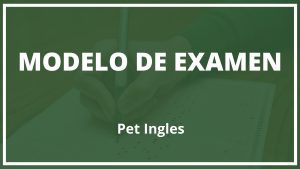
Abrir – Examen C1 Ingles – PDF
Examen C1 Ingles Soluciones
The C1 English test is a high-level English language exam that is recognised by academic institutions and employers around the world. It is the equivalent of a university-level English language exam, and is therefore perfect for students who are looking to study at a higher level, or for those who need to demonstrate their English language skills for work.
The C1 English test is made up of four papers: reading and use of English, writing, listening, and speaking. Each paper tests a different language skill, and all four papers must be taken in order to pass the exam. The reading and use of English paper is divided into two sections, and tests your ability to read and understand long and complex texts. The writing paper tests your ability to write different types of texts, such as essays, reports, and reviews. The listening paper tests your ability to understand spoken English, while the speaking paper tests your ability to communicate effectively in English.
In order to pass the C1 English test, you will need to achieve a high level of competence in all four language skills. This means that you will need to be able to read, write, listen, and speak English at a high level. However, you will not be expected to be perfect in all four skills, and you will be able to get a pass even if you make a few mistakes. The C1 English test is therefore an achievable goal for anyone who is willing to put in the effort to learn the language.
If you are planning to take the C1 English test, then you will need to make sure that you are fully prepared. There are a number of resources that you can use to help you prepare for the exam, such as textbooks, practice tests, and online resources. You should also make sure that you are familiar with the format of the exam, and that you know what to expect on the day of the test. By preparing thoroughly, you can give yourself the best chance of passing the C1 English test.
¿Cómo prepararse para el examen C1 de inglés?
¿Estás preparado para el examen C1 de inglés? Aquí te dejamos unos consejos para que puedas sacar el mejor resultado en el examen.
1. Estudia con anticipación: No dejes para estudiar de última hora, empieza con tiempo para no sentirte sobrecargado y así poder estudiar de manera más tranquila y eficiente.
2. Identifica tus debilidades: Aunque hayas estudiado mucho, puede haber algunas áreas en las que te sientas más inseguro. Identifícalas y pon especial énfasis en ellas para no tener sorpresas el día del examen.
3. Haz simulacros: Una vez que te sientas más seguro de tus conocimientos, haz simulacros del examen para poner a prueba todo lo que has estudiado. De esta forma, podrás detectar cualquier área en la que debas mejorar.
4. Descansa: El día del examen, trata de descansar lo suficiente para que estés fresco y concentrado. No te pongas nervioso, confía en lo que has estudiado y en tus habilidades.
Si sigues estos consejos, estarás mucho más preparado para el examen C1 de inglés. ¡Todo lo que necesitas está en tus manos!
¿Qué temas se ven en inglés C1?
Learning English at a C1 level requires you to be able to discuss a variety of topics in depth. These topics include: -The Arts -Culture -Current Affairs -Economics -Environment -History -Politics -Science If you want to learn English at a C1 level, you need to be prepared to discuss these topics in depth. This means being able to understand complex texts and discussions, and being able to express your own opinions on the matter. The Arts: C1 level English learners need to be able to discuss the arts in depth. This includes being able to understand complex texts about art, and being able to express your own opinions on the matter. You should be able to discuss the different forms of art, such as painting, sculpture, and architecture. You should also be familiar with the different movements in art history, such as the Renaissance, Impressionism, and Cubism. Culture: C1 level English learners need to be able to discuss culture in depth. This includes being able to understand complex texts about culture, and being able to express your own opinions on the matter. You should be familiar with the different aspects of culture, such as music, dance, cuisine, and art. You should also be familiar with the different cultures of the world, such as the cultures of Europe, Asia, and Africa. Current Affairs: C1 level English learners need to be able to discuss current affairs in depth. This includes being able to understand complex texts about current affairs, and being able to express your own opinions on the matter. You should be up-to-date with the latest news and events happening around the world. You should also be familiar with the different issues and debates surrounding current affairs, such as the environment, economics, and politics. Economics: C1 level English learners need to be able to discuss economics in depth. This includes being able to understand complex texts about economics, and being able to express your own opinions on the matter. You should be familiar with the different concepts in economics, such as supply and demand, inflation, and economic growth. You should also be familiar with the different schools of thought in economics, such as Keynesianism and Marxism. Environment: C1 level English learners need to be able to discuss the environment in depth. This includes being able to understand complex texts about the environment, and being able to express your own opinions on the matter. You should be familiar with the different issues surrounding the environment, such as climate change, deforestation, and pollution. You should also be familiar with the different methods of conservation, such as recycling and renewable energy. History: C1 level English learners need to be able to discuss history in depth. This includes being able to understand complex texts about history, and being able to express your own opinions on the matter. You should be familiar with the different periods in history, such as the Stone Age, the Middle Ages, and the Renaissance. You should also be familiar with the different events in history, such as the French Revolution, the American Civil War, and the Russian Revolution. Politics: C1 level English learners need to be able to discuss politics in depth. This includes being able to understand complex texts about politics, and being able to express your own opinions on the matter. You should be familiar with the different political systems of the world, such as democracy, communism, and socialism. You should also be familiar with the different issues and debates in politics, such as the environment, immigration, and terrorism. Science: C1 level English learners need to be able to discuss science in depth. This includes being able to understand complex texts about science, and being able to express your own opinions on the matter. You should be familiar with the different branches of science, such as biology, chemistry, and physics. You should also be familiar with the different theories and discoveries in science, such as the theory of evolution and the law of gravity.
¿Cuántos puntos se necesitan para aprobar el C1 de inglés?
¿Cuántos puntos se necesitan para aprobar el C1 de inglés?
La respuesta a esta pregunta depende de varios factores, como el nivel de exigencia de la escuela o el programa de estudios.
Por lo general, se necesitan al menos 80 puntos para aprobar el C1 de inglés. Sin embargo, si la escuela o el programa de estudios son más exigentes, se puede necesitar un puntaje más alto.
Para asegurarse de obtener el puntaje más alto posible, se recomienda estudiar con un libro de texto o un curso de inglés en línea específicamente diseñado para el C1 de inglés.
¿Que hay que llevar al examen C1?
Los estudiantes de nivel C1 necesitan llevar un diccionario de inglés y una calculadora a los exámenes. También es útil llevar una copia de la gramática y las reglas de ortografía del inglés, ya que el examen C1 puede incluir preguntas sobre estos temas. Los estudiantes deben asegurarse de estar familiarizados con el formato del examen C1 antes de la fecha del examen, ya que este nivel de exámenes es más difícil que los exámenes anteriores.
Diccionario de inglés:
Un diccionario de inglés es esencial para el examen C1. Los estudiantes deberán buscar la definición de palabras desconocidas y también ser capaces de usar el diccionario para comprobar la ortografía de las palabras. Se recomienda que los estudiantes comprueben el diccionario antes de la fecha del examen para asegurarse de que están familiarizados con su uso.
Calculadora:
Una calculadora es necesaria para el examen C1, ya que hay preguntas que requieren el cálculo de fracciones y números decimales. Los estudiantes deben asegurarse de que sus calculadoras estén permitidas en el examen y que sepan cómo usarlas antes de la fecha del examen.
Gramática y ortografía:
Los estudiantes de nivel C1 deben estar familiarizados con la gramática y las reglas de ortografía del inglés, ya que el examen puede incluir preguntas sobre estos temas. Se recomienda que los estudiantes repasen la gramática y las reglas de ortografía antes de la fecha del examen para asegurarse de que están familiarizados con el material.
Modelo de Examen C1 Ingles
Este modelo de examen está diseñado para evaluar el nivel C1 de inglés de un estudiante. El examen consta de cuatro secciones: comprensión de lectura, comprensión auditiva, expresión escrita y expresión oral. Cada sección tiene una serie de tareas que el estudiante debe completar. El examen se puede realizar de forma online o en papel.








